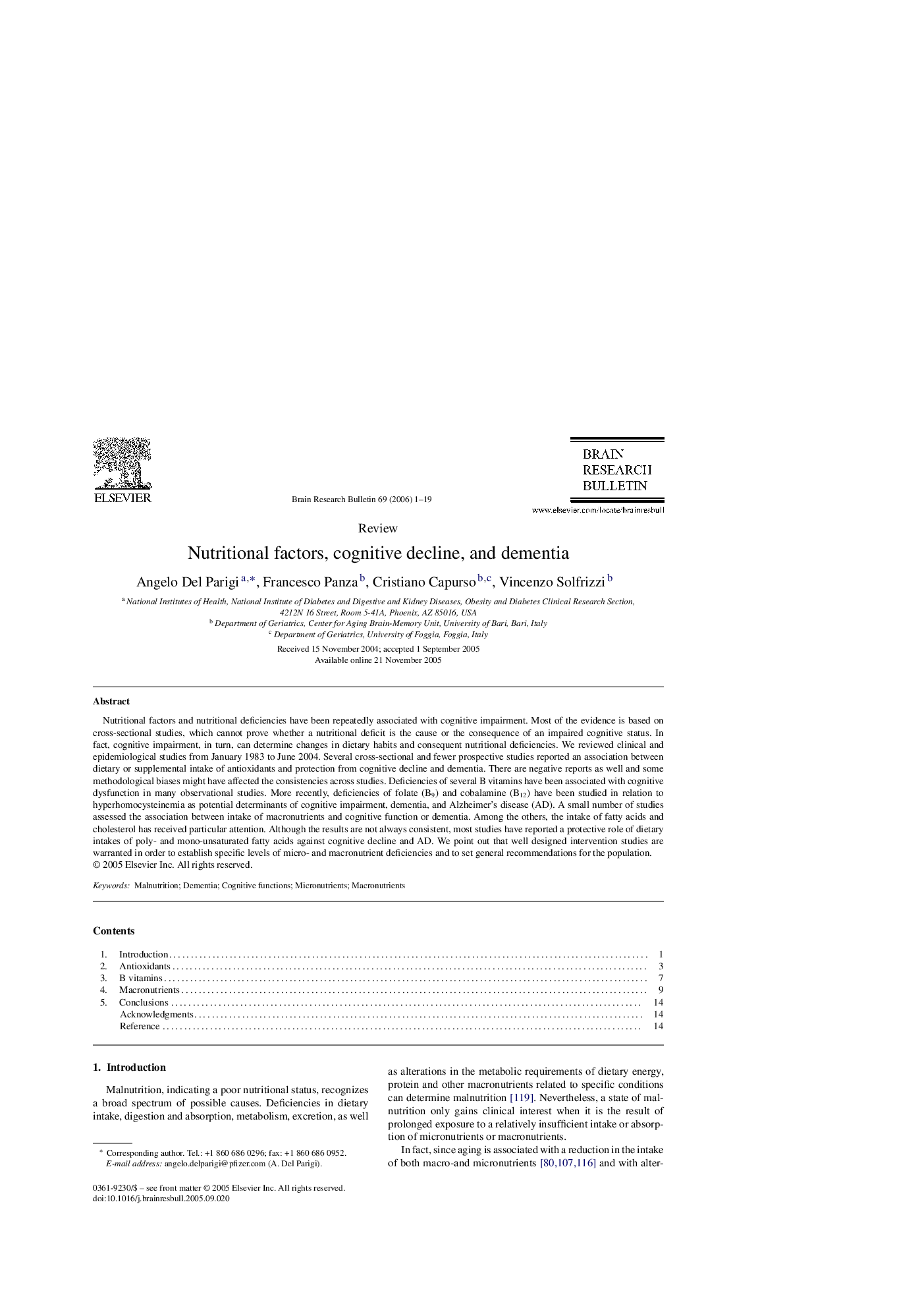| Article ID | Journal | Published Year | Pages | File Type |
|---|---|---|---|---|
| 4320405 | Brain Research Bulletin | 2006 | 19 Pages |
Nutritional factors and nutritional deficiencies have been repeatedly associated with cognitive impairment. Most of the evidence is based on cross-sectional studies, which cannot prove whether a nutritional deficit is the cause or the consequence of an impaired cognitive status. In fact, cognitive impairment, in turn, can determine changes in dietary habits and consequent nutritional deficiencies. We reviewed clinical and epidemiological studies from January 1983 to June 2004. Several cross-sectional and fewer prospective studies reported an association between dietary or supplemental intake of antioxidants and protection from cognitive decline and dementia. There are negative reports as well and some methodological biases might have affected the consistencies across studies. Deficiencies of several B vitamins have been associated with cognitive dysfunction in many observational studies. More recently, deficiencies of folate (B9) and cobalamine (B12) have been studied in relation to hyperhomocysteinemia as potential determinants of cognitive impairment, dementia, and Alzheimer's disease (AD). A small number of studies assessed the association between intake of macronutrients and cognitive function or dementia. Among the others, the intake of fatty acids and cholesterol has received particular attention. Although the results are not always consistent, most studies have reported a protective role of dietary intakes of poly- and mono-unsaturated fatty acids against cognitive decline and AD. We point out that well designed intervention studies are warranted in order to establish specific levels of micro- and macronutrient deficiencies and to set general recommendations for the population.
